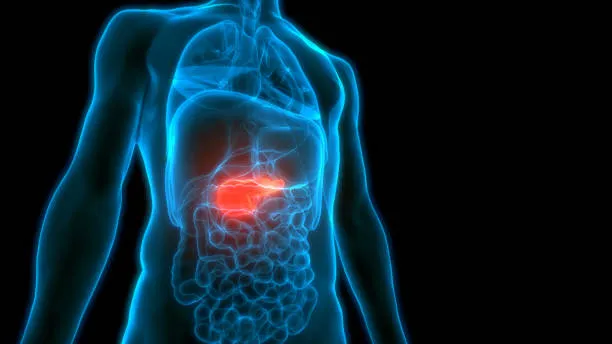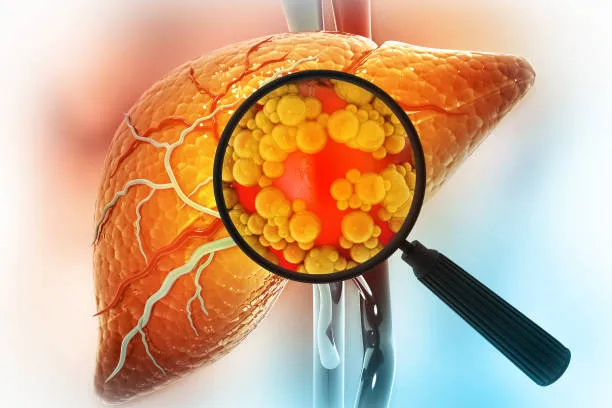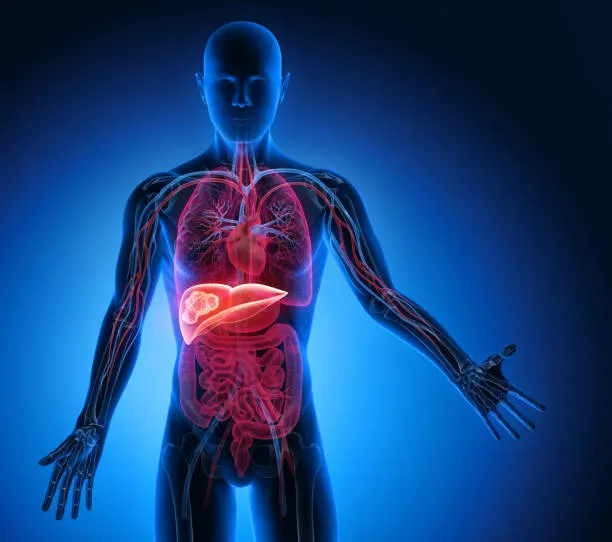
Image Source
Liver cancer is a serious and potentially life-threatening condition that requires prompt diagnosis and treatment. It is important for people to understand the causes, symptoms and treatment options for this disease. The liver is a vital organ in the human body and is responsible for filtering toxins and producing bile, which helps us digest our food. Unfortunately, this organ can be affected by cancer, which can cause a range of symptoms including weight loss, abdominal pain, jaundice, and fatigue. It is important to be aware of the risk factors for liver cancer, as well as the symptoms and treatment options available. Depending on the stage of progression, treatments may include surgery, chemotherapy, radiation therapy, or other medical interventions. With early diagnosis and treatment, patients can expect to make a full recovery.
What is Liver Cancer?
Liver cancer is a disease that develops when abnormal cells form in the liver. It can be either primary or secondary. Primary liver cancer is the most common type of liver cancer and is not related to other cancers. Secondary liver cancer occurs when cancer cells from another part of the body spread to the liver. The liver is responsible for many important functions in the body, including the processing of nutrients, blood clotting, and the production of bile. The liver is also susceptible to certain diseases, such as cancers. Liver cancer is broken down into two main types: hepatocellular carcinoma and cholangiocarcinoma. Hepatocellular carcinoma is the most common type of liver cancer and is often found in people who have chronic liver disease or hepatitis B or C. Cholangiocarcinoma is less common but more likely to spread to other organs.
Reference Source
Risk Factors for Liver Cancer:
- Chronic liver diseases, such as hepatitis B or C, are the most common risk factors for liver cancer.
- Obesity is another risk factor for liver cancer, as well as diabetes, metabolic syndrome, and high blood pressure.
- People who have taken certain prescription medications, such as isotretinoin (commonly prescribed for acne), are at risk of developing liver cancer.
- Alcoholism and smoking are also risk factors for liver cancer.
- Having a family history of liver cancer can increase your risk of developing the disease.
- Certain inherited disorders, such as hemochromatosis, can also increase the risk of liver cancer.
Symptoms of Liver Cancer:
- Weight loss - this may be a sign that the liver cannot absorb nutrients from food.
- Swelling in the abdomen - this may be a sign of an enlarged liver.
- Jaundice - yellowing of the skin and eyes. It may be caused by a build-up of bile in the blood.
- Itching - this may be due to an infection called cellulitis that spreads to the skin.
- Abdominal pain - this can be a symptom of liver cancer.
- General fatigue - this may occur due to a build-up of toxins in the blood.
- Blood in the stool - this is a sign that the cancer has spread to the intestines.
Reference Source
Diagnosis of Liver Cancer:
Blood tests are often used to diagnose liver cancer. Blood tests can find signs of liver damage, such as an increased liver enzyme level; they can also find signs of cancer, such as a high alpha-fetoprotein level. Ultrasound can help to diagnose and monitor liver cancer; it can also be used to guide a biopsy, which is often used to confirm a diagnosis. An endoscopy or a CT scan may be used to diagnose liver cancer if ultrasound is inconclusive.
Treatment Options for Liver Cancer:
Surgery is the primary treatment option for liver cancer; it can be used to remove the tumor, part of the liver, or the entire organ. If the tumor cannot be removed during surgery, chemotherapy may be used as an adjuvant treatment. Radiation therapy may be used to shrink the tumor before surgery. Chemotherapy may be used as a primary treatment option for liver cancer, as well as in combination with radiation therapy. Certain chemotherapy drugs can be given intravenously, orally, or through a port placed in the chest.

Surgery for Liver Cancer:
Depending on the size and location of the tumor, surgery may be recommended as part of the treatment for liver cancer. If the tumor is small, surgery may be the only treatment necessary. Surgery is also used as a primary treatment option for liver cancer, as well as a treatment option after chemotherapy. During the procedure, the surgeon will remove the tumor, a part of the liver, or the entire organ, if necessary. A liver transplant may be recommended if the cancer has spread to other parts of the body.
Chemotherapy for Liver Cancer:
Chemotherapy may be used as a primary treatment for liver cancer, as well as a treatment option after surgery. The type of chemotherapy administered will depend on the type and stage of cancer, as well as the patient’s general health. The most common chemotherapy drugs used in the treatment of liver cancer are carboplatin, gemcitabine, cisplatin, and oxaliplatin.
Radiation Therapy for Liver Cancer:
Radiation therapy may be used as a primary treatment option for small tumors that do not affect major blood vessels or nearby organs. It may also be used as a secondary treatment option after surgery. The type of radiation therapy administered will depend on the type and stage of cancer, as well as the patient’s general health.
Other Interventions for Liver Cancer:
Other interventions that may be used in the treatment for liver cancer include photodynamic therapy, cryotherapy, microwave ablation, and radiofrequency ablation. Photodynamic therapy is used to treat large non-malignant liver lumps called liver cysts. Cryotherapy is used to freeze and kill the cysts, whereas microwave ablation is used to kill the cysts without freezing them. Radiofrequency ablation is used to treat small liver cysts.
Prognosis and Aftercare for Liver Cancer:
With prompt diagnosis and treatment, patients can expect to make a full recovery from liver cancer. The prognosis will depend on the stage of progression and the type of cancer; early detection is therefore crucial. Patients may be required to make lifestyle changes to reduce their risk of developing liver cancer in the future. These changes may include quitting smoking and reducing alcohol intake, as well as eating a healthy diet. It is important to visit your doctor regularly to check for signs of liver cancer, as early detection is key to a successful outcome.
Reference:
https://en.m.wikipedia.org/wiki/Liver_cancer
https://www.cdc.gov/cancer/liver/index.htm
https://www.webmd.com/cancer/understanding-liver-cancer-basic-information
https://www.nhsinform.scot/illnesses-and-conditions/cancer/cancer-types-in-adults/liver-cancer
https://www.mayoclinic.org/diseases-conditions/liver-cancer/symptoms-causes/syc-20353659
